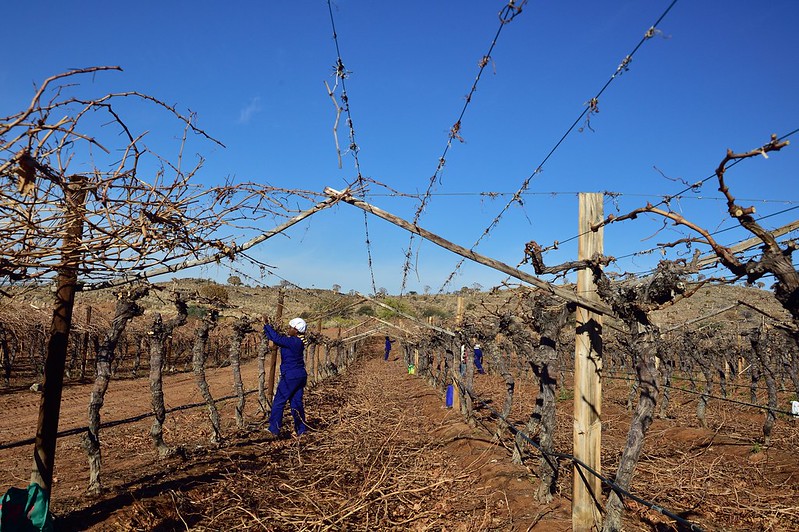How South African wineland workers used global networks to fight for their rights
Echoes of apartheid-style exploitation of workers have resurfaced in recent years in South Africa. But, as Dr Thomas Hastings explains, workers have been able to create pressure to reform laws, regulation, and strategies for policing labour standards.

Echoes of apartheid-style exploitation of workers have resurfaced in recent years in South Africa. Debates around these malpractices were given fresh impetus four years ago with the release of a documentary, Bitter Grapes. Produced by Danish journalist Tom Heinemann, it featured workers from South Africa’s winelands.
Bitter Grapes cast light on wide-ranging exploitation. Hardships included health and safety violations, underpayment of wages, and illegal efforts by producers to restrict trade union access on farms. These conditions sit uneasily with South Africa’s progressive constitution. They also run counter to numerous International Labour Organisation conventions relating to organised labour rights that the country has signed.
In a recent research paper I outlined the case for greater optimism around working conditions on wine farms due in part to the activism which helped create the documentary.
To continue reading, please click here.
Article originally appeared in The Conversation.
The featured image has been used courtesy of a Creative Commons license.




